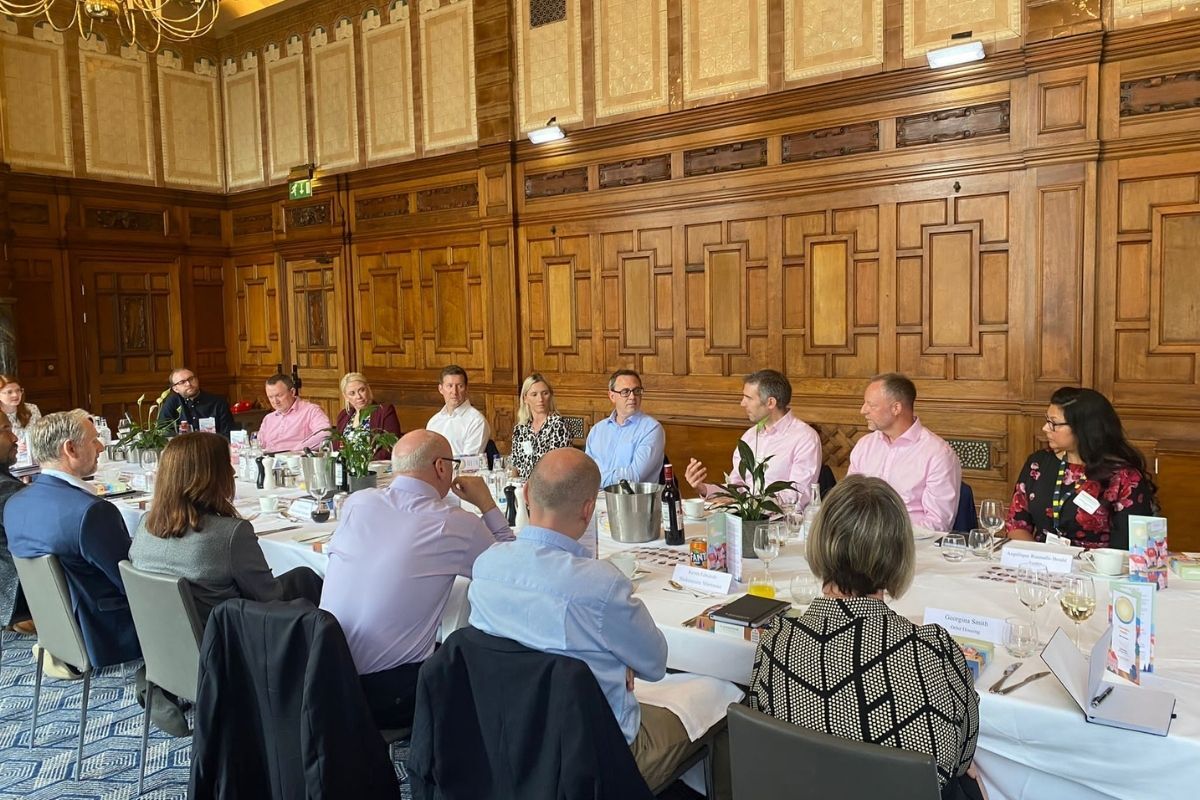Shakespeare Martineau Green Homes Round Table
Neil Gosling, head of residential development at Shakespeare Martineau reflects on the round table session on Green Homes he hosted at the Housing 2022 conference.
Green homes: It will take the ‘winter of discontent’ to finally spur action.
Despite reams of the evidence for climate change and an urgent need for action, we’re lacking in government policy, direction and support to make the process of building green homes viable for private developers and housing associations.
And while our research shows that more than three quarters (77%) of people in the housing market have said they are likely to consider a green home as their next property – mostly citing environmental concerns as the key driver – and 70% are willing to pay more for energy efficiency, there is scepticism from the sector about how true this is in practice.
At this year’s Housing Conference, we hosted a roundtable to capture the ideas and innovations from experts in residential development, social housing, MMC, finance and law to come up with solutions for the sector and discuss the challenges that need to be overcome.
The definition of insanity
One key takeaway from the event was the need for innovation – the industry is stuck doing things the way it’s always been done. One MMC contractor likened the way we deliver homes to the high jumper Dick Fosbury; who famously used a brand new technique at the 1968 Olympics, swooping gold and records to boot. Despite his success, four years later, only the youngest in the sport followed his lead – the challenge, the panellist explained, is that we’re fighting decades of muscle memory and doing things the same way.
Covid was a catalyst for innovation and the table agreed that soaring energy prices will be an important motivator for consumers to demand change and spur innovation in the sector. We saw from the pandemic and Ukraine war that – on the whole – the public are slow to action, until they experience personal pain.
Greater incentives
While education is important when it comes to consumer action, cash is king and incentives from mortgage providers could make a huge difference to the public. Why aren’t homeowners with better energy ratings getting preferential rates on their mortgage – why isn’t there a help to buy pot for energy efficient homes?
Financial support for developers – so they don’t have to pass on additional costs to consumers – would also help create a more level playing field and the financial incentives housebuilders need to make the additional costs viable.
Overall, financial structures need shaking up – one panellist with experience in banking said the energy strategy should be put into a different ‘pot’ and financing changes to the existing housing stock should be first priority.
Issues with planning
One architect said a property’s energy efficiency does not tend to be considered until a home has been designed and signed off.
He believes building regulations should be brought forward in the process to ensure green credentials are being taken into consideration during the design phase.
What’s more is there is no consistency between planning policy from council to council and without this collaboration being driven from the top down we won’t see the changes we need to make green homes possible and viable. We’re told there is a housing shortage, yet there are numerous restrictions and blockers in planning that prevent the development of new homes.
Collaboration
Collaboration and transparency will be crucial for achieving net zero homes. Housing associations reps sat at the table said they would like to see greater knowledge sharing, particularly around pilot schemes. However, there was some nervousness from those present to share ideas ‘too soon’, before project completion. It was argued that more could be done to share the facts of phased updates so the industry can benefit from incremental knowledge gains.
Are the stars aligning?
There was a sense of overall positivity that the stars were aligning… slowly. Consumer behaviour is starting to shift – and the panel agreed that the looming ‘winter of discontent’ would be a catalyst for change.
What’s also important is that government creates a level playing field for developers, including financial incentives and uniform building regulations with a push top down for drastic change.
While many of the incentives and solutions described in this article will take months, years to materialise (if at all), something we – the sector – can do now is continue to bang the drum for green homes, energy efficiency and change.
Neil Gosling is head of residential development at full-service law firm Shakespeare Martineau, which released its Green Homes Report: What Buyers Want earlier this year.




